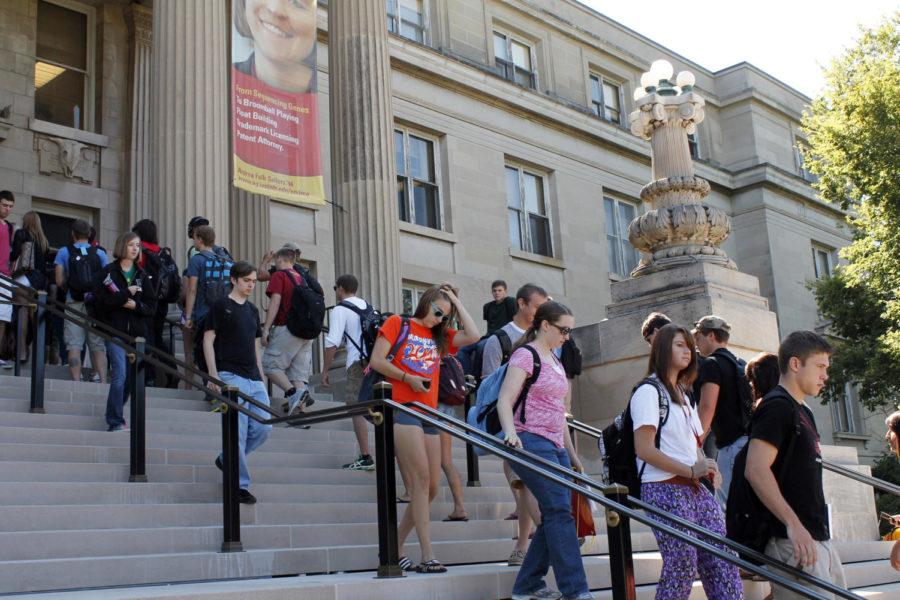Habits to make: Budgeting time
Photo: Adam Ring/Iowa State Dail
Students walk in and out of Curtiss Hall using the front steps during the first day of classes of the 2013 fall semester.
August 26, 2015
For new and returning students, August brings a schedule full of classes, work and social meetings.
Sometimes this means rushing to a meeting between classes or skipping a meal to make it to class on time. With more than 800 clubs and organizations available at Iowa State, it is easy for students to fill up their schedules with activities.
In order to be successful, students learn to manage their time.
Caroline Berg, freshman in business and hospitality management, said she was nervous for classes to start. She plans on getting involved with her sorority as well as joining three or four clubs. Berg is aware that scheduling conflicts are a possibility.
“If it gets to be too much, I’m going to drop a club because school is more important. It’s what I’m here for,” Berg said. “Academics are a top priority no matter what.”
Though students might pick up as many work shifts as they can, but their academic success can become compromised as a result. Students are not permitted to work more than 20 hours a week at university jobs when class is in session. This helps students budget their time wisely and balance their academic life.
Balancing school responsibilities with other obligations can be overwhelming for some students. Not everyone color-codes their calendars and sets alarms on their phones for important reminders and appointments.
“Treat school like it’s a job,” said Jason Wiegand, academic adviser for the Greenlee School of Journalism and Mass Communication.
As an academic coach at the Hixson-Lied Student Success Center, Wiegand introduced the CyMail calendar to students who wanted to make the most out of their time on campus.
The calendar is a great way to visualize schedules and organize tasks, Wiegand said. Students can then prioritize their events, set goals and schedule study time.
Most college students are familiar with the guideline that for every hour spent in class, three hours should be spent studying outside of class. Wiegand suggested students invest approximately 45 hours a week to academics.
He also said he believes students should get involved in extracurriculars right away.
“Get in there, play some parts,” Wiegand said.
Justin Karns, sophomore in pre-business, said he isn’t going to procrastinate this year like he did his freshman year.
“I had a lot of easy gen-ed classes, and it was hard to focus on them because they weren’t really interesting.”
Karns found himself spending time with friends instead of finishing his assignments or studying for upcoming tests.
“Don’t say you’ll do it later,” Karns said. “Get it done. Get your schoolwork done first, and there will be plenty of time left to do fun things.”







